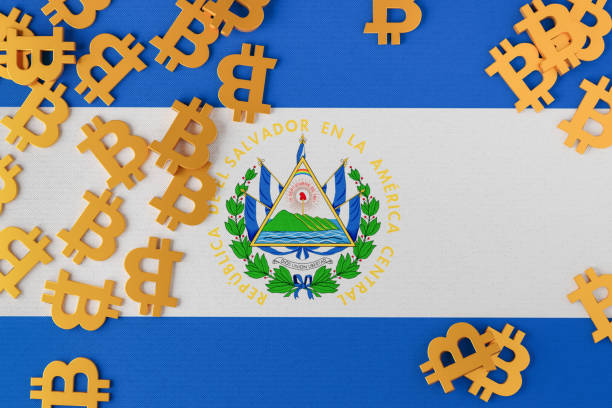Introduction to Blockchain Laws
Blockchain technology has revolutionized many industries, from finance to healthcare. As its use expands, understanding the laws surrounding it has become essential. Blockchain laws refer to a complex set of regulations and legal principles that govern the use, application, and security of blockchain technology and cryptocurrencies. These laws are still evolving, which can create confusion for individuals, businesses, and governments. This article will explore the key aspects of blockchain laws, including their scope, implications, challenges, and the regulatory frameworks that are shaping their future.

What is Blockchain Technology?
Before delving into the laws surrounding blockchain, it’s important to understand what blockchain technology is. Simply put, a blockchain is a decentralized, digital ledger that records transactions across a distributed network of computers. Each block in the chain contains a record of multiple transactions, and these blocks are linked together to form an unchangeable chain. This technology ensures transparency, security, and the integrity of data.
Blockchain has applications beyond cryptocurrencies like Bitcoin. It is used in fields such as finance, supply chain management, healthcare, and even voting systems. As blockchain adoption grows, it’s crucial for stakeholders to understand the legal framework that governs these innovations.
The Importance of Blockchain Laws
Blockchain laws are essential because they provide a framework that governs how blockchain technology should be used, ensuring compliance with existing regulations. These laws help address issues such as intellectual property rights, data protection, fraud prevention, and regulatory compliance in financial transactions. Without proper legal guidelines, blockchain could be misused, leading to potential financial crimes or violations of privacy.
One significant aspect of blockchain law is the protection of user data and privacy. Since blockchain operates across a distributed network, understanding how data is managed and secured is vital for individuals and organizations. Data protection laws, like the General Data Protection Regulation (GDPR) in Europe, must be adhered to when implementing blockchain solutions, especially those that handle personal information.
Key Areas of Blockchain Laws
1. Cryptocurrency Regulations
Cryptocurrency is one of the most well-known applications of blockchain technology. Bitcoin, Ethereum, and other cryptocurrencies have garnered significant attention from regulators worldwide. Different countries have varying approaches to cryptocurrency regulations. Some have embraced cryptocurrencies, offering clear legal frameworks for their use, while others have imposed bans or restrictions.
In countries like the United States, cryptocurrency is primarily regulated by the Securities and Exchange Commission (SEC) and the Commodity Futures Trading Commission (CFTC). These agencies determine whether a cryptocurrency is a commodity or a security, which in turn impacts the rules for trading and taxation.
In contrast, countries like China have adopted a more restrictive stance on cryptocurrency, implementing outright bans on mining and trading activities. The legal status of cryptocurrency continues to be a hot topic globally, with governments working to strike a balance between innovation and regulation.
2. Smart Contracts and Legal Binding
Smart contracts are another area where blockchain intersects with law. These self-executing contracts automatically enforce the terms of an agreement once certain conditions are met. While smart contracts are highly efficient, the question arises: are they legally binding? The short answer is yes, but their enforceability depends on the jurisdiction.
Smart contracts can be particularly useful in reducing fraud, minimizing errors, and ensuring transparency in transactions. However, jurisdictions may require that smart contracts comply with traditional contract law principles, such as mutual consent and consideration. Furthermore, parties may need to ensure that smart contracts adhere to local laws governing contract execution and dispute resolution.
3. Blockchain and Intellectual Property
Blockchain technology has the potential to revolutionize intellectual property (IP) management. In traditional IP management, companies register their patents, trademarks, and copyrights with centralized authorities. Blockchain offers an alternative by enabling the creation of immutable records of ownership and transactions.
By recording the creation, transfer, and licensing of IP on a blockchain, it becomes easier to track ownership and prevent unauthorized use. This could lead to more transparent and secure management of intellectual property, particularly in industries like entertainment, art, and software development.
4. Blockchain and Data Protection Laws
Data protection is one of the most pressing concerns in the digital age. With blockchain technology, personal data can be stored securely across a distributed network, but the question of how to comply with data protection laws like GDPR arises.
Blockchain’s immutability creates a challenge when it comes to the “right to be forgotten” clause in GDPR, which allows individuals to request the deletion of their personal data. Since data on a blockchain cannot be easily deleted, companies implementing blockchain solutions must find ways to ensure compliance with data protection laws.
5. Legal Challenges in Blockchain Adoption
Despite its many benefits, blockchain technology faces several legal challenges. One of the biggest hurdles is the lack of a uniform legal framework. Different countries have different laws governing blockchain technology, making it difficult for businesses to navigate international legal landscapes.
Another challenge is the issue of jurisdiction. Since blockchain operates across borders and decentralized networks, it is often unclear which jurisdiction’s laws should apply in the event of a dispute. Governments and legal experts are working to address these challenges through international agreements and multilateral frameworks.
6. Blockchain and Financial Regulations
Blockchain’s impact on the financial sector cannot be understated. Traditional financial systems rely on intermediaries like banks to facilitate transactions and ensure compliance with regulatory requirements. Blockchain technology, by contrast, allows for peer-to-peer transactions without the need for intermediaries.
However, this raises questions about how blockchain-based financial systems should be regulated. Financial regulators must address issues related to anti-money laundering (AML), combating the financing of terrorism (CFT), and know-your-customer (KYC) requirements. Additionally, regulators must ensure that blockchain-based financial products, such as Initial Coin Offerings (ICOs), comply with securities laws.
Conclusion: The Future of Blockchain Laws
As blockchain technology continues to evolve, so too will the legal frameworks that govern it. Governments, regulators, and legal experts must collaborate to create laws that foster innovation while ensuring that the technology is used responsibly. Blockchain offers many benefits, but without a robust legal infrastructure, its full potential cannot be realized.
In conclusion, understanding blockchain laws is essential for anyone looking to engage with blockchain technology. As regulations continue to evolve, staying informed and compliant will be key to navigating this exciting new frontier.

Thank you for your sharing. I am worried that I lack creative ideas. It is your article that makes me full of hope. Thank you. But, I have a question, can you help me?
Your point of view caught my eye and was very interesting. Thanks. I have a question for you.
Thanks for sharing. I read many of your blog posts, cool, your blog is very good.
Your article helped me a lot, is there any more related content? Thanks!
Your article helped me a lot, is there any more related content? Thanks!
Thank you for your sharing. I am worried that I lack creative ideas. It is your article that makes me full of hope. Thank you. But, I have a question, can you help me?
Thanks for sharing. I read many of your blog posts, cool, your blog is very good.
Thank you for your sharing. I am worried that I lack creative ideas. It is your article that makes me full of hope. Thank you. But, I have a question, can you help me?
Can you be more specific about the content of your article? After reading it, I still have some doubts. Hope you can help me.